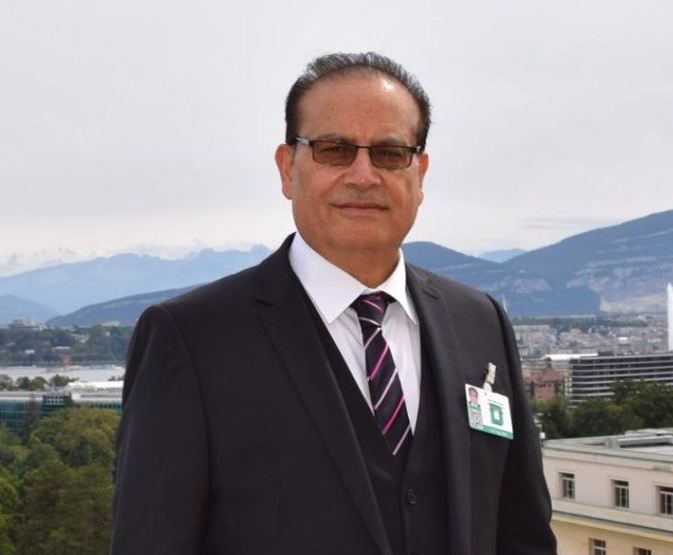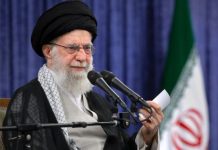By: Qamar Bashir
Macomb, Detroit, Michigan
Intoxicated by a landslide victory in the presidential elections and securing a majority in the U.S. Congress and Senate, flanked by business magnates and entrepreneurial billionaires, the U.S. President-elect, who is just a week away from taking the oath of office to become one of the most powerful individuals in the modern world, has wasted no time in signaling a dramatic shift in policy. Contrary to his campaign rhetoric of non-interventionism, he has begun to outline bold expansionist policies that, if implemented even partially, could alter the geography and history of the world for generations to come.
While he had promised to withdraw the U.S. from foreign wars and conflicts, it now appears his vision was not about reducing global entanglements but rather reshaping them. His policies suggest a pivot from participating in the wars of other nations to initiating conflicts of his own—starting with the immediate neighbors of the U.S. and potentially extending to other parts of the world. This ambition for a “new America” includes a significant expansion of the U.S. defense forces to facilitate territorial acquisitions, the enlargement of federal bureaucracies to manage newly acquired territories, and the bolstering of homeland security forces to address the inevitable backlash of terrorism and unrest resulting from these policies.
He is particularly serious about annexation of Canada. In his latest press conference, he said “We have a massive trade deficit with Canada, reaching up to $250 billion. We don’t need their milk, cars, lumbers, or energy and other products, yet we provide them with subsidies. Moreover, the USA is responsible for Canada security, Canada has little or no military. They donot pay to NATO as much as they should. I asked Prime Minister Trudeau what would happen if the U.S. withdrew its economic and military support, and he admitted that Canada would face severe challenges and will be obliterated. I told him that we would continue our support, if Canada were a U.S. state, not as a separate country.” He further added that the people of Canada loved the idea.
His second hot target is Greenland while addressing the preinaugural Press Conference, the President-elect was hawkish. He said acquiring Greenland is an “absolute necessity” for U.S. national and economic security. He emphasized Greenland’s strategic importance for global freedom and stated that if Denmark resisted, the U.S. could impose “very high” tariffs or consider other actions, including military measures”.
According to him, Greenland holds immense strategic importance for the United States. Its location between North America and Europe makes it critical for Arctic defense, monitoring Russian and Chinese activities, and securing emerging Arctic shipping routes as ice melts. The U.S. operates Thule Air Base in Greenland, a vital part of its missile early warning and space surveillance systems, contributing to NATO and NORAD operations. Economically, Greenland is rich in rare earth minerals, oil, gas, and fishing resources, which are essential for reducing reliance on adversaries like China and boosting U.S. energy independence.
In his press conference, he vowed to regain control of the Panama Canal, citing its strategic and economic importance. Historically, the U.S. built and controlled the canal from its opening in 1914 until its transfer to Panama in 1999 under the Panama Canal Treaties signed by President Carter. The canal was a vital asset for U.S. trade and military mobility, particularly during World War II.
President-elect Donald Trump announced plans to rename the Gulf of Mexico as the “Gulf of America,” stating, “We’re going to be changing the name of the Gulf of Mexico to the Gulf of America, which has a beautiful ring… And it’s appropriate.” This proposal aligns with Trump’s agenda to assert U.S. sovereignty and dominance, particularly in relation to Mexico, citing concerns over immigration and trade imbalances.
Implementing President-elect Trump’s expansionist policies—annexing Canada, acquiring Greenland, and controlling the Panama Canal—would require a substantial increase in military spending. Securing Canada, the second-largest country in the world by landmass, would involve deploying at least 300,000 additional troops for occupation and policing, costing approximately $100 billion annually. Establishing military infrastructure in Greenland, such as Arctic bases and radar systems, would add $50 billion annually. Taking control of the Panama Canal, a region with strategic and economic significance, would involve initial operations costing $20-30 billion and ongoing expenses of $10 billion annually. Overall, modernizing and expanding the military for such global ambitions could raise the defense budget by $500 billion annually.
Countering domestic and regional blowback from these expansionist policies would necessitate a dramatic expansion of U.S. homeland security capabilities. The annexation of Canada, Greenland, and Panama would likely provoke resistance movements, terrorism, and unrest, requiring the Department of Homeland Security (DHS) to double its workforce by adding 300,000 personnel. This expansion, along with enhanced counter-terrorism and surveillance programs, would cost an estimated $50-75 billion annually. Additional measures to manage increased immigration control and internal dissent could further raise these costs, creating an immense strain on domestic security resources.
To fund this expansionist vision, the U.S. would need to nearly double its current defense and security budget, increasing total spending to $1.7-1.8 trillion annually. This would impose immense pressure on the U.S. economy, potentially leading to higher taxes or deficits.
These expansionist policies would sharply contradict Trump’s earlier promises of non-interventionism. While the rhetoric suggests retracting the U.S. from foreign wars, these actions would signify a shift toward starting new conflicts and territorial expansions. Far from avoiding global entanglements, these moves would provoke international resistance, destabilize alliances, and damage relationships with NATO and other partners. Countries like China, Russia, and the EU would likely respond with retaliatory measures, economic sanctions, and military build-ups, leading to heightened tensions and potentially triggering a new era of global conflict.
By: Qamar Bashir
Press Secretary to the President (Rtd)
Former Press Minister at Embassy of Pakistan to France
Former MD, SRBC












